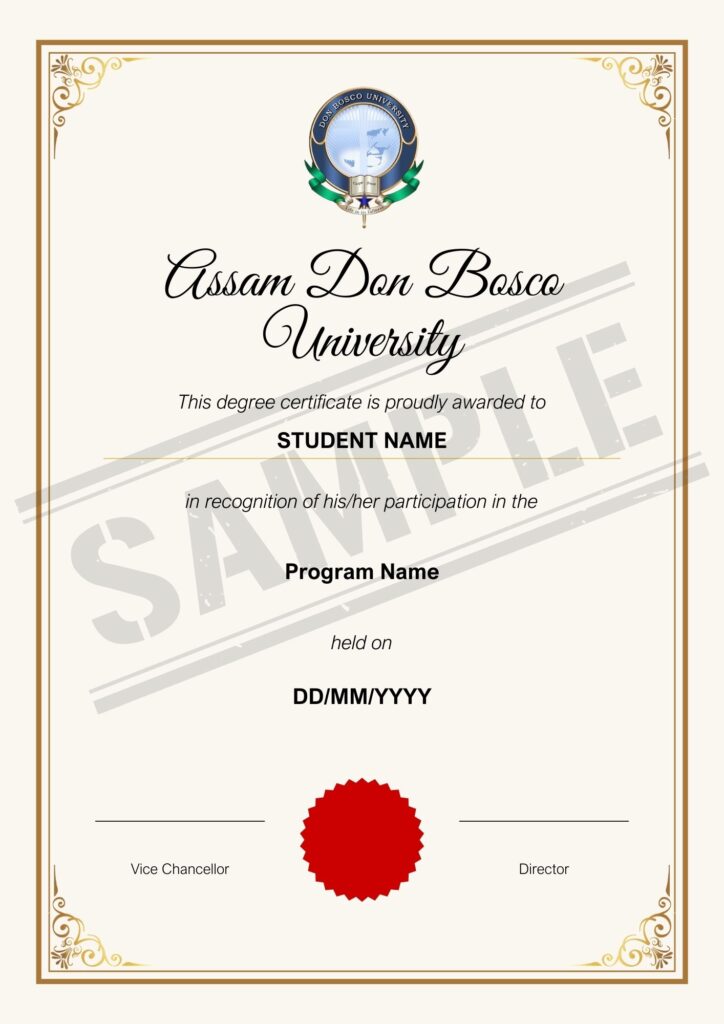Test Program
BSc in Zoology
Duration: 03 Years
BSc in Zoology
A Bachelor of Science (BSc) in Zoology is an undergraduate program dedicated to the study of animals, their physiology, behavior, and interactions with their ecosystems. This course provides a foundational understanding of biological concepts while focusing on the animal kingdom.

Program Highlights and Advantages
Discover our Degree Programs and begin an exciting educational journey

Emerging specializations
New-age specializations shaping tomorrow's business landscape

Robust Learning Model
550+ hours of video lectures to help you maximize your learning

Personalized Learning
Personalized learning through unique option of choice based credit system

Real World Projects
Real world projects & case studies to help you succeed in your domain
Program Overview & Structure
| Non-chordates I: Protista to Pseudocoelomates |
| Perspectives in Ecology |
| Non-chordates I: Protista to Pseudocoelomates Lab |
| Perspectives in Ecology Lab |
| English Communications |
| Atomic Structure, Bonding, General Organic Chemistry and Aliphatic Hydrocarbons |
| Biodiversity (Microbes, Algae, Fungi and Archegoniate) |
| Atomic Structure, Bonding, General Organic Chemistry and Aliphatic Hydrocarbons Lab |
| Biodiversity (Microbes, Algae, Fungi and Archegoniate) Lab |
| Non-chordates II: Coelomates |
| Cell Biology |
| Non-chordates II: Coelomates Lab |
| Cell Biology Lab |
| Environmental Studies |
| Chemical Energetics, Equilibria & Functional Organic Chemistry-1 |
| Plant Ecology and Taxonomy |
| Chemical Energetics, Equilibria & Functional Organic Chemistry-1 Lab |
| Plant Ecology and Taxonomy Lab |
| Diversity of Chordates |
| Physiology: Controlling and Coordinating systems |
| Fundamentals of Biochemistry |
| Diversity of Chordates Lab |
| Physiology: Controlling and Coordinating systems Lab |
| Fundamentals of Biochemistry Lab |
| Research Methodology |
| Inorganic Chemistry-I: Atomic Structure and Chemical Bonding |
| Plant Physiology and Metabolism |
| Inorganic Chemistry-I: Atomic Structure and Chemical Bonding Lab |
| Plant Physiology and Metabolism Lab |
| Comparative Anatomy of Vertebrates |
| Physiology: Life Sustaining Systems |
| Biochemistry of Metabolic Processes |
| Comparative Anatomy of Vertebrates Lab |
| Physiology: Life Sustaining Systems Lab |
| Biochemistry of Metabolic Processes Lab |
| Sericulture / Aquarium Fish Keeping |
| Physical Chemistry- I: State of Matter and Ionic Equilibrium |
| Economic Botany and Biotechnology |
| Physical Chemistry- I: State of Matter and Ionic Equilibrium Lab |
| Economic Botany and Biotechnology Lab |
| Molecular Biology |
| Principles of Genetics |
| Molecular Biology Lab |
| Principles of Genetics Lab |
| Wildlife Conservation and Management |
| Wildlife Conservation and Management Lab |
| Animal Behaviour and Chronobiology |
| Animal Behaviour and Chronobiology Lab |
| Computational Biology |
| Computational Biology Lab |
| Animal Biotechnology |
| Animal Biotechnology Lab |
| Developmental Biology |
| Evolutionary Biology |
| Developmental Biology Lab |
| Evolutionary Biology Lab |
| Immunology |
| Immunology Lab |
| Parasitology |
| Parasitology Lab |
| Fish and Fisheries |
| Fish and Fisheries Lab |
| Biology of Insecta |
| Biology of Insecta Lab |
Degree offered by us

Eligibility
Grade /Marks requirement from qualifying examinations
Passed the qualifying examination with Physics/ Mathematics /Chemistry/ Computer Science/Electronics/Information Technology/ Biology/Informatics Practices/ Biotechnology/Technical Vocational subject/ Agriculture/ Engineering Graphics/ Business Studies/Entrepreneurship with 45% in the aggregate of all subjects and 45% in the aggregate of any of the three
Entrance Examinations / Personal Interview
National Entrance Test such as JEE / State level entrance examination such as CEE or the ADBU Entrance Examination for Engineers
Career Impact
How We Help You Build Your Dream Career
Industry Mentors
Personalized guidance from career experts throughout the academic journey.
Placement Drives
Connect with employers & explore opportunities through interactive online events.
Master Classes
Access comprehensive help for resume building, interview preparation and job placement.
Profile Building
Build a credible professional profile by showcasing your skills through hands-on projects.
F.A.Q.
The university offers a range of undergraduate, graduate, and doctoral programs across disciplines including engineering, science, arts, business, and health sciences. Each program has its own specific requirements and areas of focus.
You can apply online through our university’s admissions portal. Complete the application form, submit the required documents (such as transcripts, test scores, and recommendation letters), and pay the application fee. Detailed instructions are available on our admissions webpage.
Admission requirements vary by program. Typically, undergraduate programs require a high school diploma and specific academic credentials, while graduate programs may require a bachelor’s degree in a related field, relevant test scores, and work experience. Be sure to review the specific requirements for the program to which you are applying.
Yes, the university offers a variety of scholarships and financial aid programs based on academic merit, financial need, and other criteria. Information about available scholarships and how to apply is available on the university’s financial aid webpage.
Application deadlines vary depending on the program and the intake period (e.g., fall, spring). Be sure to check the program’s admissions page for specific deadlines.
